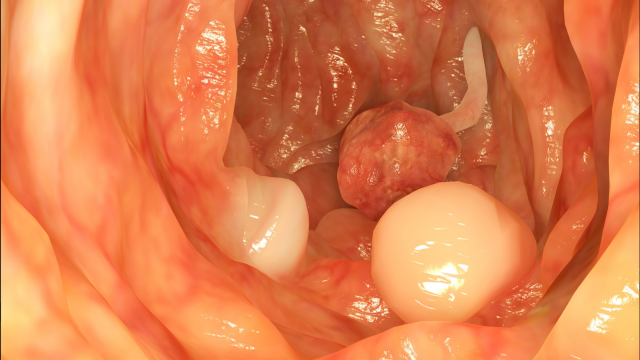Menopause is said to have occurred if you do not have a period for 1 year. The average age of menopause is 51 years, but it can happen anytime from 45 to 55 years.
Bleeding after menopause is not normal and you should see a gynecologist for a checkup. The bleeding can be due to various causes as follow:
Polyps
These are small finger-like growths from the lining of the uterus. They grow from the lining into the cavity of the uterus and sometimes into the cervical canal. They may also protrude out of the external opening of the cervix and may be seen with a naked eye on a speculum examination of the vagina. They are usually noncancerous. They can cause heavy irregular bleeding and sometimes bleeding after sex.
Endometrial Hyperplasia
In this situation the lining of the uterus becomes thick. This happens when there is estrogen production but no progesterone available after menopause. Sometimes the cells of the lining can become abnormal and eventually turn into cancer. Women usually complain of heavy frequent and abnormal vaginal bleeding.
Withdrawal Bleeding
This is bleeding that occurs sometimes when a menopausal woman is on hormonal therapy and then discontinues it.
Endometrial Cancer
This occurs in the menopausal women, is usually slow-growing, and does not spread fast. Women complain of blood-stained discharge or frank bleeding after menopause.
If you have bleeding after menopause then you will need a complete examination and certain tests:
- Pelvic sonography is the commonest test
- You may also need diagnostic hysteroscopy (i.e. look into the cavity of the uterus with a camera)
- Dilatation and curettage i.e. the lining of the uterus is scraped and sent for examination under a microscope. The report of the lining will decide the further course of action.
Polyps can be removed at the same time. Hyperplasia can be treated with medication but in some cases with complex hyperplasia, it may be prudent to remove the uterus. In the case of cancer, surgery is usually step one and further treatment may be required depending on the stage.


















